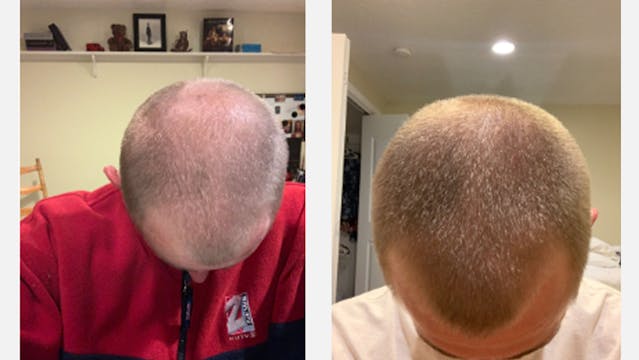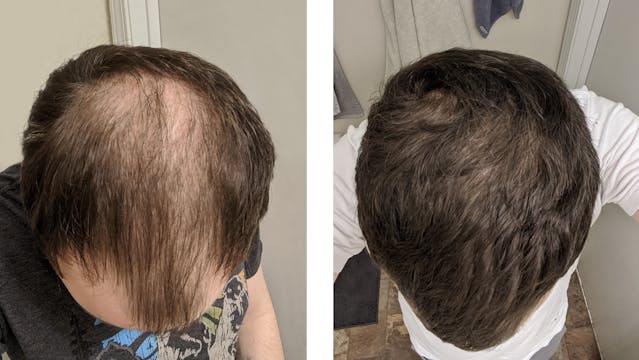We’ve all heard the story of the tortoise and the hare. The hare, being so much faster than the tortoise, is so sure that he’ll win a race against the tortoise that he takes a nap during the race. However, this nap (and his complacency), costs the hare. The slow and steady approach of the tortoise is ultimately what wins the race and we’re taught that the one that runs the fastest doesn’t necessarily win in the long term. The same is true when it comes to making changes to your diet and lifestyle.
It’s so difficult to be patient. When we decide that we want something, we often want it straight away. This is why, when you decide that you want to get healthy, feel good in your body and improve your diet, you want to see results quickly. You want to notice your body changing, you want to feel better in your clothes and you want to see that transformed reflection staring back at you in the mirror… after just a few days. That drive to achieve change quickly is often what leads people to crash diet.
There’s a range of different fad diets out there, many of which promise miraculous benefits and rapid weight loss:
- “Detox” plans promise to rid your body of toxins when, in fact, there’s no need for us to drink celery juice, bizarre teas, and starve ourselves to achieve this outcome. Our organs (such as our liver), daily trips to the toilet and bodily functions such as sweating do an amazing job of detoxing our body for us daily - without a celery juice in sight.
- Juice cleanses often promise to give you clear skin, digestive relief and a whole host of other benefits when, in fact, many juice diets can be very high in free sugars and inject a lot of fructose into your body with very little fibre, protein or fat. The World Health Organisation recommends that we limit our consumption of free sugars in juices. On top of this, not consuming enough fibre, fat or protein for long periods of time can be harmful to your long-term health.
- A very low-carb, low-calorie keto programme may promise that you’ll feel energized and restored however, the lack of fibre and brightly coloured, antioxidant-rich vegetables and fruits on the plan may mean that you very quickly find yourself constipated.
- A very long-fasting regime promises to cleanse you and re-set your metabolism however, the regime doesn’t account for the fact that you'll be starving hungry once the fast is over and then find yourself binge-eating and over-eating as you end the long fast.
Any plan or diet that forces you to starve yourself and significantly under-eat will allow you to lose weight. Many of these quick-fix plans promote consuming lots of nutrient-dense foods such as veggies and fruits and, of course, this is beneficial. However, cutting out lots of other food groups, or following a very restrictive diet, could be very harmful to you long term. Often, crash diets and extreme weight loss plans can either cause eating disorders or ultimately result in weight gain. Here are 6 reasons why fad and extreme diets are a bad idea:
1. You may end up having very obsessive thoughts about food, your body or your weight
Going on a crash diet can make you have obsessive thoughts about food, your body or your weight. These obsessive thoughts can, in turn, lead to poor mental health and disordered eating. A study known as the Minnesota Starvation Experiment was conducted on 36 healthy men back in 1944. The study was created to see how men would respond to 6 months of following a very low-calorie diet. There were several outcomes for the men following this diet, including shifts in their appearance, decreases in their sex drive and strength, as well as shifts in their mood, with the men reporting irritability and depression. However, what was also observed was that the men became very obsessed with food after the starvation period. They would fantasize, dream, talk and read about food. Very obsessive thoughts about food are also commonly reported in individuals struggling with anorexia, bulimia or other eating disorders. Whilst individuals struggling with eating disorders may avoid eating or restrict their food intake, this food restriction drives them to then obsess about food. This food obsession is actually a very helpful survival mechanism. Back in the caveman days, if you hadn’t eaten for a long time, your brain and body would want you to focus only on food so that you prioritise seeking it out. However, the result of this survival mechanism in the modern age is that crash diets can drive an unhealthy obsession with food.
2. You may start to isolate yourself from friends and family which can negatively affect your mental health
Developing an unhealthy relationship with food can be very detrimental in the long term. Starvation has been shown to have a very negative effect on mood and the brain. This downturn in your mood can create a vicious cycle. When we feel low, we tend to want to isolate ourselves from others, however, this withdrawal from activities tends to make us feel even worse and may cause us to become even more insular and obsessed with certain things, such as food. We’ve seen how food restriction can lead to food obsession. As a result of prioritising and obsessing over food, aspects of your life are neglected. Consequences of a crash diet include a reduced sex drive, less interest in relationships and spending time with others, and distraction from work projects - all because your brain and body are consumed by the necessity to get food in order to survive.
You may find that a crash diet causes you to withdraw from friends, colleagues and family because you’re nervous about what you’re going to be able to eat on that date, at that networking event or at your friend’s house. Food restriction can often lead to isolation from others because social life tends to revolve around food (and drink). However, isolating yourself from friends and family can have a very negative effect on your mental health and may lead to harmful thoughts and disordered eating patterns.
3. You could get addicted to the starvation high
Anorexia is the mental health condition with the highest mortality rate. It’s an extremely dangerous condition which involves individuals restricting their food intake and starving themselves until they become very unwell. Certain researchers have suggested that for individuals struggling with anorexia, not eating becomes very addictive and gives individuals a high. This addiction is extremely dangerous as it can ultimately lead to the death of a person. Extreme dieting can be a risk factor for the development of anorexia. Anything taken to the extreme tends to be harmful. Dieting and the pursuit of the “perfect body” can develop into a very harmful mental health condition. For this reason, it’s much safer and more helpful in the long term to take a slow and steady approach to any lifestyle changes that you wish to make.
4. Your body thinks it’s starving which may lead to a binge
Often, a period of starvation and under-eating then leads to a period of bingeing and over-eating. We’ve already seen how food restriction causes the brain and body to obsess over food and prioritise food over all else. This then shows up as a period in which the brain and body will try and get as much food as they possibly can. Many individuals find themselves going through periods of crash dieting and then periods of over-eating and this is, in fact, the body’s natural survival instincts playing out. The body is responding to what it sees as a period of famine with a period of feasting so that it can store up for the next famine that may be about to arrive. Ultimately, this pattern of starving yourself and then bingeing can lead to weight gain. This is why it’s much better for your long-term health to avoid any very extreme diets or food restrictions.
5. You may choose to comfort eat or emotional eat because you’re so hungry
When you’re full and satisfied, if life throws you something stressful, you may cope by talking things through with your partner, going for a walk or hitting the gym. However, if you’re hungry and stressed, you’re much more likely to reach for food when things don’t go your way. Effectively, any small trigger can lead to you giving up on your health goals and diet plan because your body and brain are so hungry that they’re looking for any excuse to get the nourishment and nutrition that they need.
6. Your physical health is negatively impacted by starvation
If you under-eat and starve yourself over a long period of time, this will negatively affect your physical health. Starvation results in malnutrition, electrolyte imbalance, a weakened immune system, damage to the heart and other organs, dizziness and fainting spells as well as hair loss and muscle-wasting. In extreme cases, starvation can result in organ failure and even death. Whilst crash diets may seem like a quick and easy way to reach your goals, under-nourishing your body, cutting out entire food groups and starving your body of the nutrients that it needs can be extremely harmful.
The numan take
The desire to achieve results quickly and notice changes in your body can be very strong. However, extreme dieting behaviours can very often lead to disordered eating or poor mental health and ultimately, have very negative effects. It’s helpful to think of the long game here. If you lose weight very quickly, it will probably be regained very quickly. In some cases, extreme dieting leads to a very serious eating disorder.







